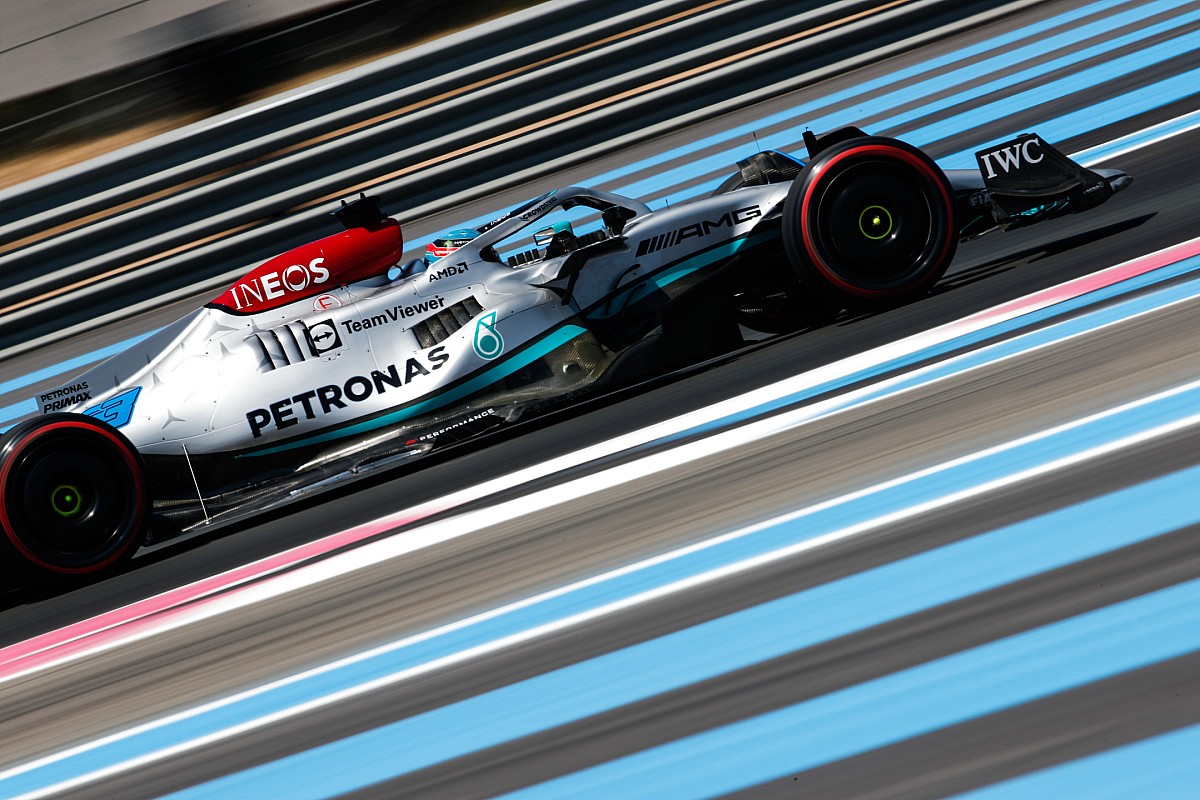
Petronas has backed Mercedes as title sponsor throughout the turbo hybrid era, having originally joined forces in 2010. It has helped it secure a total of 15 drivers’ and constructors’ world championships during that time.
Its current deal ran until the end of 2025, with the success of the partnership making it likely that it would be renewed at some point.
However, as Mercedes furthers preparations for new F1 engine regulations from 2026 as the championship shifts to fully sustainable fuels, it has ensured that the partnership is in place so work can begin in earnest on the new rules.
Mercedes team boss Toto Wolff announced the new deal, which the team says is long term, during a visit to Petronas’ headquarters in Kuala Lumpur.
"Today we are doing something a little bit unusual - announcing a partnership that will begin in four years' time,” said Wolff.
“This sends an important message: our team and Petronas are no longer just partners, we are family, and we will be one team for many more years to come.”.
The extension of the partnership cements a joint push that Mercedes and Petronas are making towards a carbon neutral future for the team.
As well as F1’s shift to fully sustainable fuel, the Brackley-based squad has set a net zero target for 2030.

Having been the first F1 team to invest in sustainable aviation fuel, Petronas recently assisted in a trial for Mercedes to run a number of its F1 race trucks on biofuel for the recent triple header across Belgium, the Netherlands and Italy.
The team revealed that the switch to biofuel for its trucks reduced carbon emissions over the three weeks by 89 percent.
Petronas has faith that it can deliver a competitive fully sustainable fuel for Mercedes’ F1 cars, as well as explore other avenues to reduce carbon emissions in years to come.
Datuk Sazali Hamzah, Executive Vice President and Chief Executive Officer of Petronas, said: "With our long-standing partnership and extensive experience in formulating the Fluid Technology Solutions for the team, Petronas is fully equipped with the capacity and capabilities to perfect the technology to produce and supply 100% advanced sustainable fuel for the next-generation power units.
"In that same vein, we are already on track with developing a greenfield bio refinery and co-processing at our facilities to supply sustainable aviation fuel (SAF) as a cleaner and more viable option for aircrafts in our effort to support the aviation industry needs
“This is in line with Carbon Offsetting and Reduction Scheme for International Aviation (CORSIA) which is expected to come into mandatory effect by 2027 as well as Federation Internationale de l'Automobile's (FIA) net zero by 2030 commitment - both of which will affect the logistics operations of F1 teams.”







